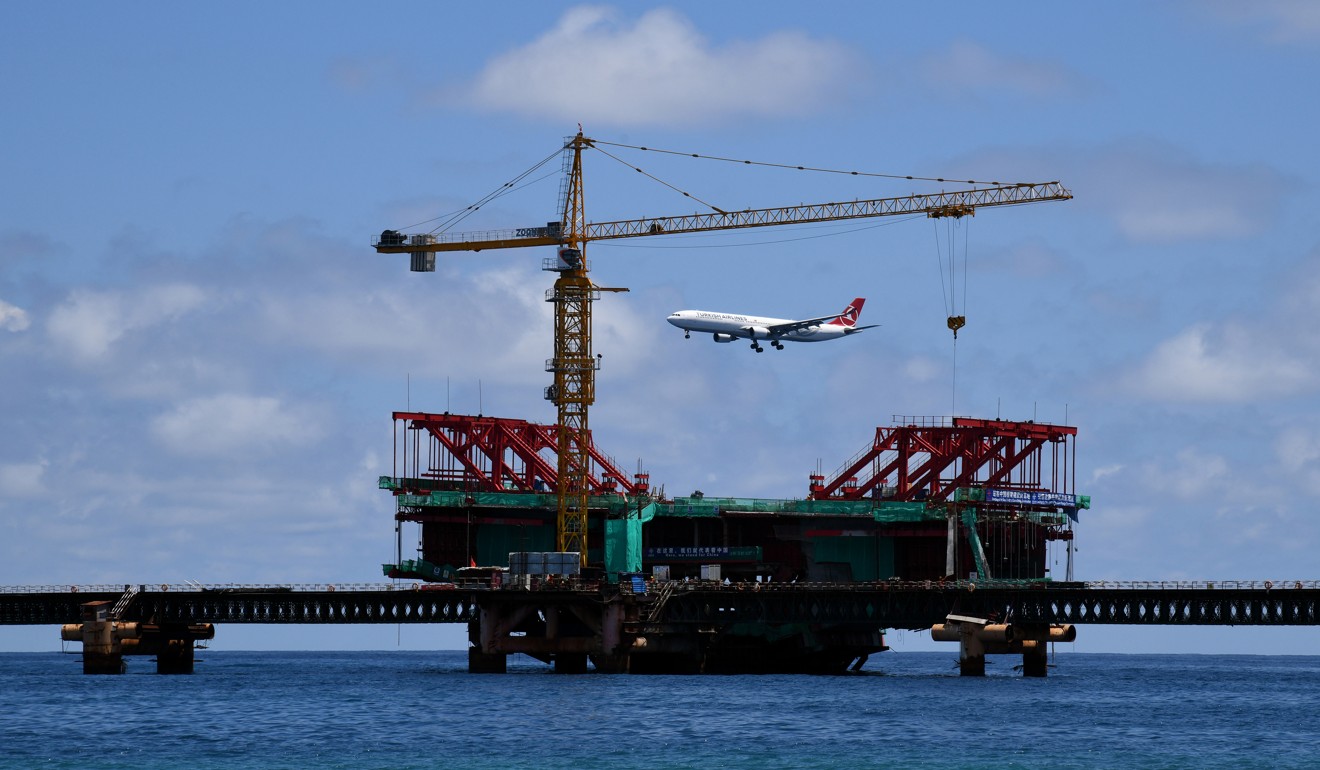
Business leaders across Asia like Beijing’s belt and road vision. But China’s rising influence is giving some the jitters
- The country’s growth and investment in Southeast Asia and beyond is only expected to expand, according to two new surveys
- But executives are still worried about the reach of Chinese companies, while having more trust in British, Japanese and German firms

Business leaders across Asia recently surveyed by two professional services firms believe China’s growth and infrastructure investments through its “Belt and Road Initiative” mean its dominance in the region will only expand – despite earlier expectations that India would become more influential.
But the executives still have concerns about the reach of Chinese companies within their domestic economies and would be less amenable to Chinese investors acquiring local firms in specific sectors, including banking and financial services, food and beverages and agriculture, according to professional services firm Brunswick.

The company’s report, released on Monday, featured interviews that were conducted in November with 300 global Chinese business leaders as well as 1,200 professionals in Singapore, Malaysia, Indonesia and Thailand. The findings were released a day before law firm Baker McKenzie issued its report for which 600 CEOs and company directors in the Asia-Pacific region were canvassed
Baker McKenzie found that 81 per cent of its respondents said China – which since 2013 has rolled out its multibillion dollar push to grow global trade and infrastructure linkages – would have a far greater influence than India in Asia in the next five years.
Only 21 per cent of respondents said so in the last survey two years ago – when the majority expected India to be the most influential. This year, more than 60 per cent of respondents in the Asia-Pacific said the belt and road plan was important or fundamental to their business strategy.
“More investment in Southeast Asia ought to be welcome,” said Lye Liang Fook, senior fellow at ISEAS Yusof Ishak Institute in Singapore. “In several countries in Southeast Asia, there is a need for such an outflow of capital and expertise, especially in the form of infrastructure that underpins economic growth.”
But the belt and road plan has brought with it scepticism and fears of debt trap deals, which could hamstring growing economies. While Brunswick found overwhelming support for China as a partner for development and infrastructure projects in countries such as Pakistan and Nigeria, views were more mixed in Southeast Asia. More than 80 per cent of respondents in Malaysia and Indonesia had a favourable view of China, while 71 per cent of respondents in Thailand and 64 per cent in Singapore said the same. Scepticism was greatest in the US, where more than half of respondents expressed unfavourable views.
“While the region needs infrastructure, questions about lopsided deals with heavy debt loads have been raised among policymakers and even become issues in national elections,” said Khor Yu Leng, independent political economist at economic consultancy Segi Enam Advisors in Singapore. In the run up to the 2018 national election in Malaysia, which culminated in Mahathir Mohamad’s shock victory, the nation’s participation in China-backed projects came under scrutiny.
But Hendra Sinadia, executive director of the Indonesian Coal Mining Association and director of Indonesia’s Chamber of Commerce and Industry, said there was nothing wrong with China dominating foreign direct investments in Indonesia.
“Indonesia definitely needs investment, regardless of the country of origin,” he said.
“Investors from China are more prepared than any other investors in terms of technology and capital.”
Brunswick, whose work includes reputation management, noted that opinions about Chinese companies mirrored opinions about China as a country. “This connection … risks the behaviour of others – including the government – influencing opinion of Chinese companies,” it said.
Of the 7,500 respondents surveyed, close to 90 per cent had somewhat or very favourable views of British, Japanese and German companies – but this figure went down to 74 per cent for Chinese companies.
Silmy Karim, president and director of state-owned steelmaker Krakatau Steel in Indonesia, said Chinese companies need to adopt fair practices and treat domestic industries fairly.

“The element of trust needs time to build,” said Lye at ISEAS. “The negative publicity around some [belt and road] projects does not help with building trust.
“It is more prudent to pay attention to implementation details of [the belt and road plan] – transparency and accountability of projects, benefits to the local community, participation by local business – the emphasis should be less on speed and scale than quality,” he said, adding this was the joint responsibility of China and other countries involved.
Nimesh Salike, professor of international business at Xi’an Jiaotong-Liverpool University, said Chinese investors could include more local stakeholders to build trust.
“How these infrastructure investments lead to larger trade between China and Asean economies as well as within Asean needs to be assessed carefully,” he said.
“Foreign direct investment is good for us,” said Ambono Janurianto, head of PT Bakrieland Development in Indonesia. “Without it, we will not be able to boost our economy.” However, he added, Chinese companies would never be able to command the entire Indonesian market, because of its size.
In its report, Brunswick recommended that Chinese companies make better use of media platforms which reach global audiences to communicate their goals effectively. “Media engagement is an invaluable communication tool for Chinese firms,” it said, adding that the most trusted sources of information about Chinese companies were global media reports and academic research.
Additional reporting by Aloysius Unditu